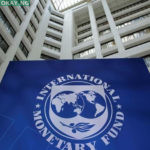The Central Bank of Nigeria (CBN) has delivered a firm directive to all banks, payment service banks, and fintech companies operating within the nation’s financial ecosystem, mandating a significant tightening of their sanctions compliance frameworks. In a circular issued on April 17, 2025, the apex bank explicitly warned that failure to adhere to both domestic and international sanctions lists would result in stringent enforcement actions and potential regulatory sanctions.
Signed by Amonia Opusunju, for the Director of the Compliance Department, the circular serves as a potent reminder of the financial institutions’ unwavering obligation to align with critical sanctions mandates. These include the universally recognized United Nations Consolidated Sanctions List, the Nigerian Sanctions List as stipulated under the Terrorism (Prevention and Prohibition) Act 2022, and the CBN’s own comprehensive guidelines concerning targeted financial sanctions related to terrorism and its financing.
The CBN underscored the necessity for financial institutions to cultivate and maintain a “robust and dynamic sanctions compliance framework.” This proactive approach demands the swift identification and immediate response to any updates or changes across all pertinent sanctions lists. Furthermore, institutions are expected to implement measures that effectively prevent their systems and platforms from being exploited for transactions involving individuals or entities designated on these lists. Crucially, the directive emphasizes the need for real-time screening of customers, all transactional activities, and the ultimate beneficial owners of accounts.
The circular explicitly states, “Financial Institutions are required to maintain a robust and dynamic sanctions compliance framework that enables them to Identify and respond promptly to updates or changes across all applicable sanctions lists; Prevent the use of their systems and platforms for transactions involving designated individuals or entities; Conduct real-time screening of customers, transactions, and beneficial owners; and File appropriate reports with the Nigerian Financial Intelligence Unit and notify the CBN, where necessary.”
Beyond these preventative measures, the CBN has mandated that financial institutions diligently file appropriate reports with the Nigerian Financial Intelligence Unit (NFIU) and promptly notify the CBN itself when any potential breaches or suspicious activities are detected. The gravity of non-compliance was explicitly highlighted with the warning that “failure to comply may result in enforcement action or regulatory sanctions.”
Read Also: FG Mandates Transparency: Tertiary Institutions Face May 31 Deadline for Financial Data Release
The apex bank further stressed the continuous nature of compliance, asserting that “the effectiveness of sanctions compliance programmes must be regularly reviewed and aligned with legal and regulatory requirements and expectations.” This implies an ongoing need for financial institutions to adapt and enhance their compliance mechanisms in response to evolving global and local regulations.
This decisive regulatory push arrives at a critical juncture, as global scrutiny surrounding financial crimes, particularly those related to anti-money laundering (AML) and counter-terrorism financing (CFT), intensifies. Nigeria, currently engaged in concerted efforts to bolster its standing with international watchdogs such as the Financial Action Task Force (FATF), has been progressively amplifying its oversight across the entire financial sector.
Notably, the CBN’s directive also casts a spotlight on the burgeoning fintech sector and other non-traditional financial players. As innovation within this space continues its rapid trajectory, the regulator emphasizes the critical need for these entities to seamlessly integrate robust compliance mechanisms into their platforms from inception.
The CBN has unequivocally conveyed the seriousness with which this reminder should be treated by all institutions under its regulatory umbrella, firmly stating that compliance is not merely an option but a fundamental requirement. Financial operators are strongly urged to meticulously align their operations with all applicable laws and CBN directives to proactively avoid potentially significant penalties.
This assertive move by the Central Bank of Nigeria signals a potential upswing in regulatory enforcement within the financial sector. Banks and fintech companies are now facing heightened expectations to significantly invest in and enhance their compliance infrastructure, encompassing sophisticated sanctions screening tools, comprehensive transaction monitoring systems, and meticulous reporting protocols. The message from the CBN is clear: robust sanctions compliance is no longer a matter of discretion but a mandatory pillar of operation within Nigeria’s financial landscape.












